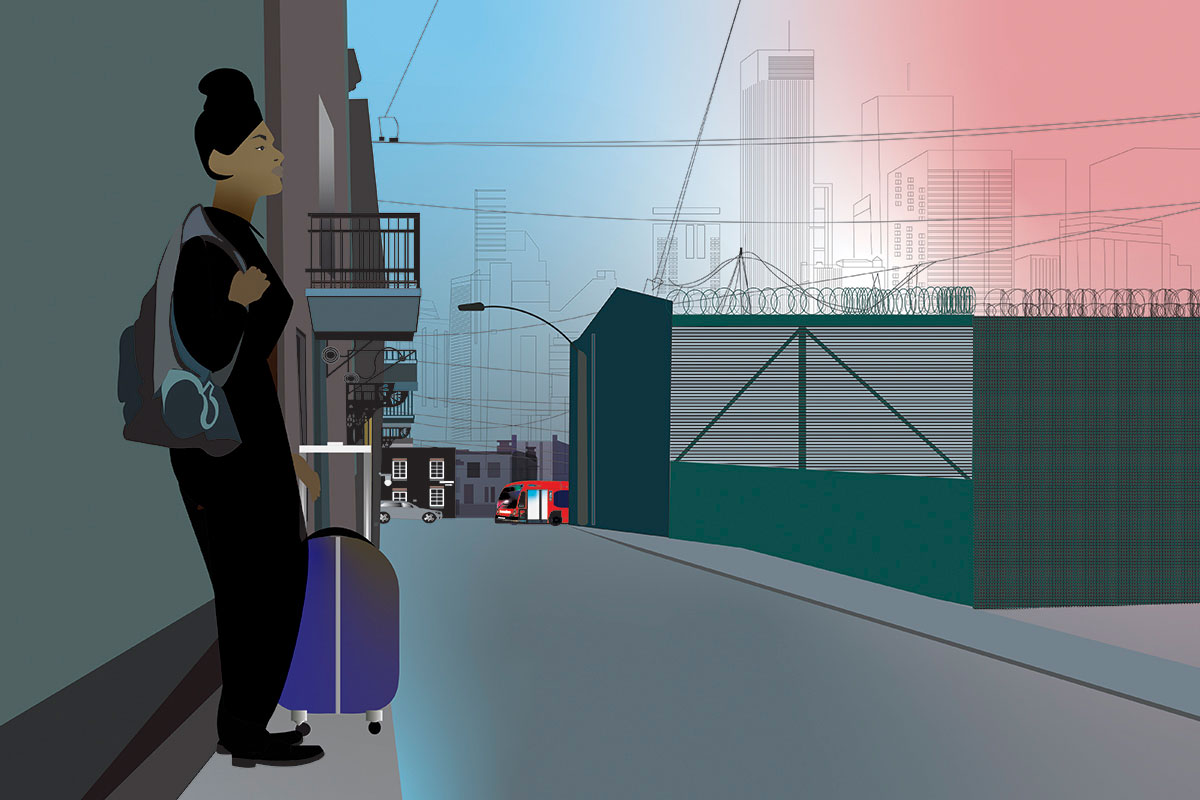You are viewing 1 of your 1 free articles
Why the social housing world should care about criminal justice reform
The government’s sentencing review is a step towards a more effective criminal justice system, writes Ashley Horsey, chief executive of Commonweal Housing
Why is Commonweal Housing bothering the pages of the leading housing-sector publication with something about the criminal justice system?
Many readers have already made the link between housing (or lack of it) and higher rates of reoffending. In addition, the most recent early-release scheme to bring prisoner numbers down – to create space to lock up new individuals – apart from making headlines on the day, also put many local-authority homelessness teams, charities and social housing providers under immense strain.
Housing is fundamental to much social and public policy. For too long, governments have relied on quick fixes and emergency measures to address issues in a complex framework in need of carefully considered reform: our criminal justice system.
That is why it is encouraging to see the new government announce a review of sentencing that aims to find long-term solutions to the crisis facing our prisons.
The way the criminal justice system works – or often doesn’t work – has been a longstanding concern of our work at Commonweal. It is not only a symptom, but a significant driver, of too much social injustice.
Our recently published report, by charity Nacro, explores the relationship between the criminal justice system and homelessness, as well as its links to reoffending.
“Recent data shows that people who left prison without accommodation in 2022 had almost double the proven reoffending rate of those who had somewhere to live”
Recent data shows that people who left prison without accommodation in 2022 had almost double the proven reoffending rate of those who had somewhere to live. Yet only 45% of prison leavers were released into stable accommodation last year, according to the latest figures from the Ministry of Justice.
Alarmingly, this number is likely to be much higher now, as frontline organisations attribute rising homelessness rates to the government’s early-release scheme, with many individuals released into housing uncertainty.
As identified in Nacro’s report, homelessness is particularly acute among people serving short prison sentences. A key aspect of the independent sentencing review, led by former justice secretary David Gauke, aims to look at whether imprisonment is always the most effective form of punishment, compared with alternatives like community service.
And it’s even tougher for women, who are more likely to receive short sentences for low-level offences. About 70% of sentences for women are shorter than 12 months, research from the Prison Reform Trust shows.
For mothers, the impact of a short custodial sentence is particularly severe, as homelessness after release significantly affects their ability to maintain familial relationships and reunite with their children.
All too often, those leaving prison after serving a short sentence are unable to move forward with their lives and instead are stuck with the aftermath of their sentences, much beyond their time spent in prison.
If we really want to break the cycle of reoffending, the government needs to rethink the role and relevance of short sentencing and consider alternatives that allow people to serve their time in the community.
“All too often, those leaving prison after serving a short sentence are unable to move forward with their lives and instead are stuck with the aftermath of their sentences, much beyond their time spent in prison”
Ending short sentences aligns with recommendations from the evaluation of Commonweal’s flagship Re-Unite pilot project from over 10 years ago, which housed mothers and their children.
After more than 16 years of supporting projects in and around the criminal justice system and prisons in particular, we’ve seen the crucial role the right housing and the right support plays in helping those released from prison rebuild their lives.
More recently, Commonweal has partnered with charity Servol Community Services to deliver a project that will offer tailored housing alongside wraparound support for prison leavers with severe mental health issues and complex needs.
Additionally, we are collaborating with the Daddyless Daughters project to provide secure housing and trauma-informed support for young girls who have experienced care and have engaged with the criminal justice system. These projects are set to get off the ground next year, and we look forward to sharing the valuable insights they will provide to the sector.
While housing solutions are crucial to addressing the issues facing those involved with the criminal justice system, it is clear that the current system fails to deter crime or, importantly, to rehabilitate individuals and reduce reoffending.
As such, the sentencing review is a much-needed step in the right direction to ensure our criminal justice system truly serves its purpose, ideally with a linked-in housing sector playing its role, too.
Ashley Horsey, chief executive, Commonweal Housing
Sign up for our daily newsletter
Already have an account? Click here to manage your newsletters













